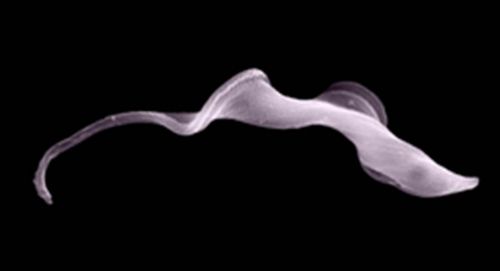
13/12/2017
ALBA Synchrotron Works for People’s Health
ALBA Synchrotron Works for People’s Health
Two recent works remind us that ALBA synchrotron is a very valuable tool to help develop new drugs.
On one hand, using the MIRAS beam line of the ALBA synchrotron (infrared radiations), researchers from the Universitat Autònoma de Barcelona (UAB) and the ALBA Synchrotron have demonstrated in a paper the capability of metalosomes - aggregates made of phospholipids and metal complexes - to interact with cells and release carbon monoxide in a controlled way (CO release can be beneficial because of its anti-inflammatory, vasodilator and cardio protective properties).
On the other hand, in another publication, a team led by researchers from the Universitat Politècnica de Catalunya (UPC) has unveiled the mechanism of action of two drugs, FR60 and JNI18, which cure 100% of mice with sleeping sickness. Using X-rays of the ALBA XALOC beam line, they have observed how these drugs perfectly stacked on the Trypanosoma brucei’s DNA, the parasite that causes the disease (image). Blocking and inflicting specific damage on its DNA, the parasite cannot reproduce and finally dies after 4-5 days.
On one hand, using the MIRAS beam line of the ALBA synchrotron (infrared radiations), researchers from the Universitat Autònoma de Barcelona (UAB) and the ALBA Synchrotron have demonstrated in a paper the capability of metalosomes - aggregates made of phospholipids and metal complexes - to interact with cells and release carbon monoxide in a controlled way (CO release can be beneficial because of its anti-inflammatory, vasodilator and cardio protective properties).
On the other hand, in another publication, a team led by researchers from the Universitat Politècnica de Catalunya (UPC) has unveiled the mechanism of action of two drugs, FR60 and JNI18, which cure 100% of mice with sleeping sickness. Using X-rays of the ALBA XALOC beam line, they have observed how these drugs perfectly stacked on the Trypanosoma brucei’s DNA, the parasite that causes the disease (image). Blocking and inflicting specific damage on its DNA, the parasite cannot reproduce and finally dies after 4-5 days.
More news
28/01/2021
Institutional visit to the Elena Renewable Gas Plant in Parc de l'Alba
12/01/2021
2021: the Alba synchrotron begins its mutation
30/12/2020
The Park has a new Urban Development Master Plan
29/11/2020
The director of Parc de l'Alba, Pere Solà, academic director of the new Postgraduate Course in Urban Planning and Health at the UPC School
18/11/2020
Catalan minister Ramon Tremosa visits the ALBA synchrotron and announces the creation of a public-private investment fund to improve knowledge transfer
03/11/2020
Catalonia, at the forefront of Europe in life sciences and health; the Alba synchrotron contributes to this leadership









